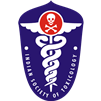Effects of Exposure to Automobile Exhausts on Pulmonary Function Tests in Traffic Policemen of Goa
Keywords:
Pulmonary function test; Automobile exhaust; Traffic policeAbstract
Health problems posed by air pollutants at the work environment of an individual are closely linked to the nature and level of exposure to these hazardous chemicals. Development of adverse effects due to these substances depends on the chemical, physical and biological nature of the substance, the
concentration of the substance in air, the intensity and duration of exposure and lastly, the host susceptibility.
Spirometry is commonly used in clinical medicine and research to evaluate effects of exposure on the respiratory system. It is the preferred tool to establish baseline lung function, to evaluate dyspnoea, detect pulmonary disease, monitor effect of therapy used to treat respiratory disease, to evaluate operative risk, control occupational lung diseases and in sports medicine.
Spirometric measures of lung function, namely maximum forced vital capacity (FVC) and maximum forced expiratory volume in one second (FEV1) are early indicators of chronic respiratory and systemic inflammation, as well as premature cardio-respiratory mortality.
Traffic policemen are among the subjects maximally exposed to traffic-related pollution. Spirometric
analysis done in traffic policemen showed significant variations in peak expiratory flow rate, forced expiratory volume in one second and forced vital capacity.
It revealed significant respiratory impairment in the traffic policemen due to exposure to vehicular pollution.
It was also observed that the values of other pulmonary function parameters were decreased in occupationally exposed traffic policemen group in comparison to that of the non-traffic policemen of the control group. On analyzing and comparing the data collected, it was concluded that the prevalence of lung disorders, both obstructive and restrictive, in occupationally exposed traffic policemen group was higher than that of the non-traffic policemen of the control group. Traffic policemen are highly vulnerable to respiratory impairment due to vehicular exhaust at workplace environment and that the appraisal of the health condition, of the affected traffic policemen group, could be alleviated by preventive measures such as the use of masks and periodic health check-ups. Awareness programmes on health impacts of pollution need to be adopted for the protection of traffic policemen working along heavily polluted roads.



